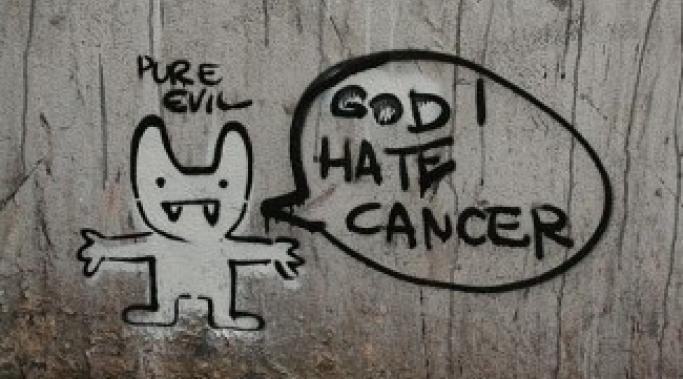Blogs
I recently read a blog written for Healthy Minds Canada, titled Getting Bad Again and this made me realize how much mental health stigma affects our personal stories. The piece, written by Emma Holden, broached a subject I find myself dwelling on. What she wrote about was how as bloggers, as writers, and as people dealing with mental health issues, we tend to only discuss things in the past tense. We talk about that time we were sick, but how now we’re in a much better place. In her post, she says, “It’s a lot harder to open up and admit something you are currently dealing with.”1
I agree. I also think there are pretty distinct reasons as to why: mental health stigma affects our personal stories.
Social anxiety rarely works alone. Mind-reading and projecting, two negative thoughts that manipulate your mind, contribute to social anxiety, feeding it and super-sizing it. Social anxiety can be exhausting because of the chatter of racing thoughts going on inside the head. Someone with social anxiety takes in what's going on around him while simultaneously listening to harsh internal dialogue berating him and telling him he's worthless and that everyone else thinks so, too. Social anxiety can be a monster, and mind-reading and projecting are among its minions.
I have to work hard to relax my mind because if I don’t, it just keeps spinning and often wanders into some irrational thought. Lately, I’ve discovered that play helps relax my mind more than almost anything else.
I think I know the best gift the mentally ill can give their families this season. It’s Christmas time again. I’m trying so hard not to get swept up by the tinsel and twinkle lights that, frankly, it’s a little depressing. Christmas without my usual hypomanic buzz feels like an arranged marriage, instead of my usual love affair with this season. But this year I'm giving my family something my hypomania can't. I'm taking charge of my illness to make certain my bipolar 1 disorder doesn't wreak havoc on my family's special moments. After all, peace is the best Christmas gift I can give my family (How Not To Take Bipolar Hypomania Irritability Out On Others).
Being overly critical of yourself goes hand in hand with low self-esteem as well as other mental health issues such as depression and anxiety. Constructive criticism can be appropriate, healthy, and helpful at times; however, being overly critical is not. When you’re overly critical, you might have unreasonable expectations, exaggerate the negatives or you might be extremely judgemental of yourself. For a healthy self-esteem, it’s important to see yourself in a healthy, balanced way. To do that, you need to stop being overly critical of yourself.
I have a mental health Christmas list. There's a popular Christmas song called My Grown-Up Christmas List. In the song, the musician sings about a desire for healing, peace, and friendship. In keeping with that spirit, here is my mental health Christmas list.
It takes a lot of courage to confront posttraumatic stress disorder (PTSD). When my PTSD symptoms flare up, I feel weak and unable to cope, but I keep going – by moving forward to make my life better. I exhibit courage when confronting PTSD -- more than I could acknowledge for many years.
It can be frustrating learning how to cope with triggers from posttraumatic stress disorder (PTSD). Triggers seem to be all around, yet it often feels like they have come out of the blue when they hit. Because so many different things have the potential to be a PTSD trigger, it may seem like an impossible task to prepare for them before they occur (When My PTSD Gets Triggered). The good news is, there are some effective coping strategies that can help deal with triggers during PTSD recovery when they do come up.
There are so many reasons why I hate having bipolar that I could have a whole blog just on that alone and I’m sure other people could join me in their hatred of bipolar disorder, too. I do realize that hating an illness is normal and that enumerating the reasons why one hates a disease is a bit of a rant, but, what can I tell you, this is my space and I’m going to tell you why I have having bipolar disorder (Bipolar Is Unfair).
How does someone appear confident and feel secure? Is there a look or a secret behind why some people exude confidence? The answer may surprise you. It isn't about what you're wearing or what you look like, it's about how mindful and prepared you are (How Mindfulness Can Increase Self-Confidence). Expressing yourself with others may be anxiety provoking but doesn't have to be with these tricks on how to appear confident and feel secure.










I believe she will only be able to rid herself of her demons, and hopefully her BPD as well, when she's ready to confront the abuse of her father. If she can put the blame where it belongs, she may stop projecting that victim/perpetrator cycle on the present men in her life. These demons are a metaphor for the purgatory she has created for herself. That reality has consequences in the real world, but it need not be real in the tangible sense. Exorcising her demons will require the expenditure of real physical energy and probably the destruction of aspects of her personality. If this ever happens, and it's possible but not probable, then these demons will evaporate. They are only as real as one's personality is real. In short, reality is not the question, it's what you make of the things you feel to be real.